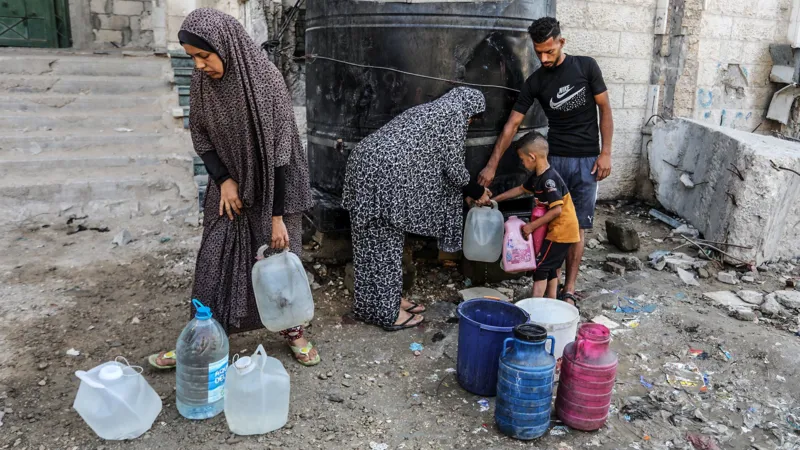
Gaza Water Crisis Worsens as Israel Expands Military Offensive
By Yolande Knell – Middle East Correspondent, reporting from Jerusalem
Gaza’s worsening humanitarian crisis has reached a critical point, with severe water shortages now threatening the survival of thousands. As Israel intensifies its military campaign, vital desalination and sanitation facilities in Gaza are at imminent risk of shutting down due to a lack of fuel.
The UN Office for the Coordination of Humanitarian Affairs (OCHA) has warned that unless fuel deliveries are made urgently, water and hygiene services could collapse completely by the end of the week.
The crisis began escalating after Israel’s blockade in early March, which halted aid and cut power to Gaza’s key desalination plants. These plants are crucial for providing safe drinking water to the besieged population. Israel said the blockade was aimed at pressuring Hamas to release remaining hostages.
Though Israel has since announced the partial resumption of basic aid, fuel remains excluded from the deliveries. Some water supplies have entered Gaza via UN trucks, but distribution has yet to reach all communities.
Many residents, like Raed al-Zaharneh from Khan Younis, have been forced to consume brackish water trucked in daily. “We know it’s undrinkable, and yet we still drink it,” he said. “We’ve suffered stomach pain and diarrhoea, but we have no other choice.”
Health experts are raising the alarm over the long-term consequences. Doctors report a surge in kidney-related ailments among children due to high salinity levels in drinking water. At al-Shifa Hospital in Gaza City, kidney specialist Dr. Ghazi al-Yazji revealed a sharp rise in infections and kidney failures linked to unsafe water.
“Even before the war, water scarcity was a major issue,” Dr. al-Yazji explained. “Now, patients needing dialysis are particularly at risk—and some have already died.”
UNICEF’s Jonathan Crickx confirmed that production at one southern Gaza desalination plant has plummeted by 80% due to electricity cuts. “We now need fuel not only to produce water but also to transport it,” he stated.
The situation is dire across both northern and southern Gaza. In the north, no fuel is currently available, and wells are being shut down. In the south, the UN requires 140,000 litres of fuel weekly to sustain water utilities—but not a drop has been received.
As displacement escalates—impacting over 140,000 people across Gaza—water trucks and even donkey carts struggle to meet the growing demand. Without immediate intervention, the region may face a full-scale public health disaster.






